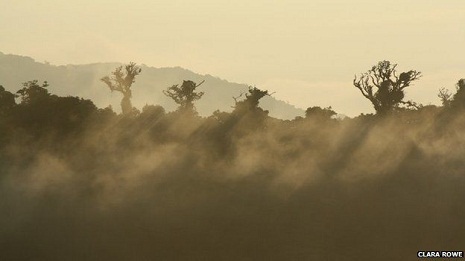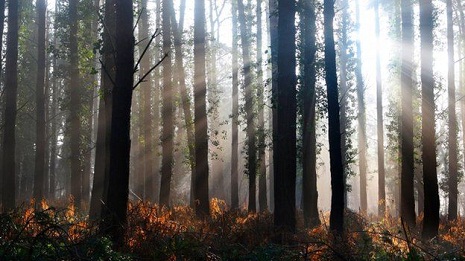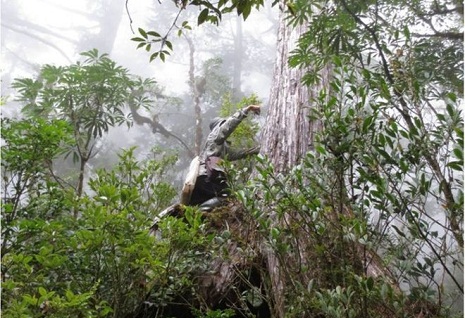It has been produced by Thomas Crowther from Yale University, and colleagues, who combined a mass of ground survey data with satellite pictures.
The team tells the journal Nature that the new total represents upwards of 420 trees for every person on the planet.
The more refined number will now form a baseline for a wide range of research applications - everything from studies that consider animal and plant habitats for biodiversity reasons, to new models of the climate, because it is trees of course that play an important role in removing the greenhouse gas carbon dioxide from the atmosphere.
`Forest system in numbers`
But Dr Crowther cautioned that the higher number did not of itself change anything.
He told the BBC`s Science In Action programme: "It`s not like we`ve discovered a load of new trees; it`s not like we`ve discovered a load of new carbon.
"So, it`s not good news for the world or bad news that we`ve produced this new number.
"We`re simply describing the state of the global forest system in numbers that people can understand and that scientists can use, and that environmental practitioners or policymakers can understand and use."
Key to the new estimate is the greater use of ground-truth data. The team collected tree density information from over 400,000 forest plots around the world.
Influence of humans on trees
This included many national forest inventories and a host of peer-reviewed studies where workers had actually gone out and counted the number of trunks in a given area and in a given forest type.
This then enabled Dr Crowther and his group to build a model that better characterized what they were seeing in satellite pictures, which are very good at showing forest extent but are not so good at revealing just how many individual trees are standing below the canopy.

Of their approximately 3,040,000,000,000 trees, the scientists put most (1.39 trillion) in the tropics and sub-tropics, 0.61 trillion in temperate regions, and 0.74 trillion in the boreal forests - that great band of conifers that circles the globe just below the Arctic.
Indeed, it is in the boreal forests that they say the greatest densities are seen.
What is abundantly clear from the study is the influence humans now have on the number of trees on Earth. The team estimates we are removing about 15 billion a year, with perhaps only five billion being planted back.
"The net loss is about a third of a percent of the current number of trees globally," said co-author Dr Henry Glick.
"That doesn`t seem to be an insignificant portion and should probably give us cause for considering the role that deforestation is playing in changing ecosystems.
"And where tree losses are often tied to timber supplies and land-use conversion for agriculture, as the global human population grows, we may see the net loss increase as well."
And as if to emphasise this point, a comparison with estimates of ancient forest cover suggests that humanity could have already removed almost three trillion trees since the last ice age, some 11,000 years ago.
"Europe used to be almost covered by one giant forest and now it`s almost entirely fields and grasslands. Humans are absolutely controlling tree densities," Dr Crowther told BBC News.

Commenting, Dr Nathalie Pettorelli from the Zoological Society of London said the study was unlikely be the last effort to do a global tree count.
She told the UK Science Media Centre: "It may be important to acknowledge that these first estimates produced by Crowther and colleagues are derived from data primarily collected in Europe and North America, with [for example] very little information collected in the Congo basin, China, Australia or India.
"As more information becomes available for these countries, it might be interesting to refine the estimates and check that key processes shaping spatial variability in tree density have not been overlooked."
And Dr Martin Lukac from the University of Reading was still not sure we were near an accurate count.
"The previous estimate of trees in the world was 400 billion. The new estimate is three trillion large trees. There are so many margins of error in this study that the real number could be anything between the two - or even 10 times higher," he said.
More about:














-1741278702.jpg&h=190&w=280&zc=1&q=100)

































